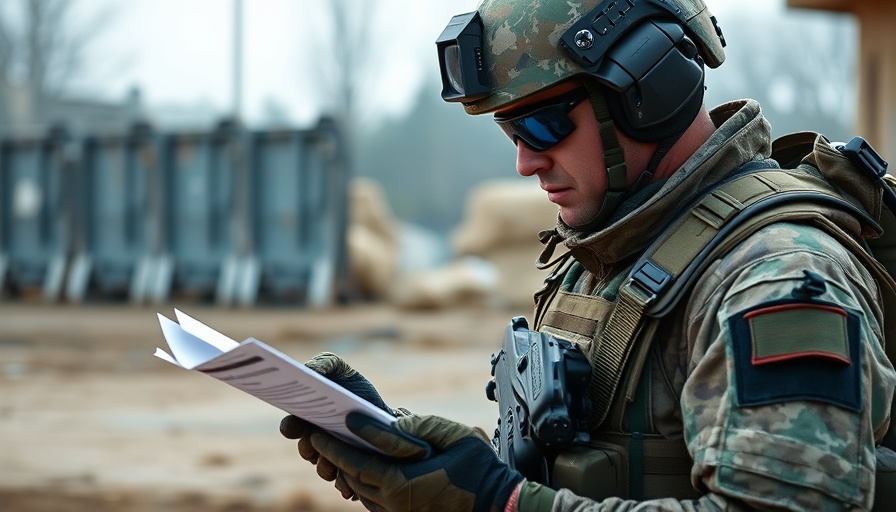
Competence and Commitment: The Case for Competing for an Expert Badge
The U.S. military operates on principles that extend beyond mere tactics; they reflect a culture steeped in competence and leadership. Take the Expert Soldier Badge (ESB), for example. This rigorous accolade isn't just a symbol of proficiency in physical fitness and combat skills. It represents an opportunity for leadership to display unwavering commitment to personal excellence and set standards within their ranks. As senior leaders venture into badge competitions, they demonstrate to junior soldiers that maintaining high standards is integral to military culture.
Leading by Example: The Ripple Effect of Leadership
When senior leaders invest their time and energy into obtaining the ESB, it resonates with their teams. The physical and mental challenges associated with earning such badges foster a unique bond between leaders and soldiers. This shared experience cultivates a shared sense of purpose and encourages junior personnel to rise to the occasion. Such actions unequivocally communicate a message: that dedication to improvement is vital in both military and civilian spheres.
Leadership Lessons from the Battlefield
The journey to earning an ESB parallels the arduous road of leadership in other arenas, including the corporate world. Just like military leaders who embrace the discomfort of training, business leaders must lead from the front, navigating their teams through challenges. As Captains in the fields of strategy and corporate operations, they must embody the courage and resilience expected of those they lead. The best corporate leaders also foster a culture that values skill and continuous learning, drawing from lessons learned in military settings.
Strategies for Warfighters and Corporate Leaders Alike
In both military and corporate sectors, genuine leadership starts with self-improvement. Here are actionable strategies for military and business leaders aiming to develop their teams:
- Embrace Vulnerability: Recognize that learning is a continuous journey. Share personal training achievements and setbacks with your team to create a space for constructive conversations.
- Encourage Peer Learning: Foster a culture where team members collaborate on skill-building activities, just as soldiers train together.
- Implement Continuous Feedback: Just as soldiers receive evaluations in their ESB training, establish a feedback mechanism for your team to ensure a growth-oriented environment.
Inspirational Anecdotes: Honor Through Action
Consider the story of a Marine Corps Sergeant who, amidst grueling training, emerged victorious from a harrowing combat situation. They not only secured their own safety but also led their squad to victory through skill, bravery, and unparalleled leadership. This kind of valor emphasizes that the unique blend of military leadership skills and real-life experiences can inspire others to strive for greatness in their professional endeavors.
Courage in Testing Times: How ESB Shapes Future Leaders
The rigorous ESB testing process serves as a microcosm for real-life leadership challenges. The tasks involved, from firearm proficiency to teamwork under pressure, prepare future leaders for the daunting decisions they will face. These experiences cultivate characteristics such as accountability, emotional intelligence, and strategic thinking—attributes that are essential in corporate settings, especially in today’s rapidly changing landscape.
So, why should senior leaders compete for an Expert Badge? The answer is as multifaceted as the individuals who pursue it. From fostering a spirit of excellence to inspiring those around them, these competitions yield more than just badges; they create leaders who can adapt, inspire, and overcome challenges in various environments, military or otherwise.
In conclusion, as military professionals and corporate leaders alike strive for excellence, let them remember that acting honorably and leading courageously requires continuous effort and visible commitment. By competing for the Expert Soldier Badge, leaders pave the way for future generations, demonstrating that the journey to mastery never truly ends. Are you ready to step into the fray and inspire those you lead?
 Add Row
Add Row  Add
Add 




Write A Comment